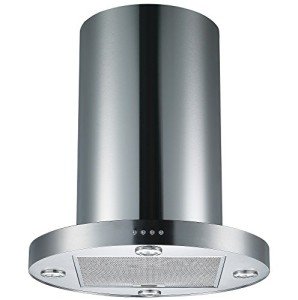A Look At The Future How Will The Extractor Fan For Island Hob Industr…
페이지 정보

Edmund
2025-05-11
-
2 회
-
0 건
본문
The Essential Guide to Extractor Fans for Island Hobs
In contemporary kitchens, the island cooker hood uk hob has actually emerged as a standout feature, functioning as a focal point for culinary imagination and celebrations. However, with the arrival of open-plan home, the requirement for reliable ventilation becomes important. An extractor over island extractor fan fan for an island cooker hood uk hob is not simply a luxury; it's a requirement. This post will explore the reasons you need to think about installing an extractor fan, the types readily available, their functions, and the very best practices for setup and upkeep.

Why Install an Extractor Fan for Island Hobs?
Island hobs are often positioned away from walls, making conventional overhead extraction hoods not practical. Here are some key reasons an extractor fan is indispensable for island hobs:
Air Quality Improvement: Cooking generates smoke, steam, and smells. An extractor fan efficiently eliminates these pollutants, leading to a cleaner kitchen environment.
Heat Reduction: Extractor fans help expel hot air, contributing to a more comfy cooking environment.
Defense Against Grease Build-Up: Continuous direct exposure to cooking fumes can result in grease accumulation on surfaces. An extractor fan alleviates this danger.
Visual Appeal: Many contemporary extractor fans are created to complement kitchen visual appeals, becoming stylish additions rather than eyesores.
Types of Extractor Fans
When picking an extractor fan for an island hob, it's important to think about the numerous types offered on the market. Here are the most common:
| Type | Description | Pros | Cons |
|---|---|---|---|
| Ducted | These systems vent air outside via a duct. | Highly efficient at removing odors and smoke; enhances air quality. | Setup can be complex; needs a path to exterior. |
| Ductless (Recirculating) | Filters air and recirculates it back into the kitchen. | Simpler to install; no external vent needed. | Less efficient in eliminating smoke and odors; requires regular filter modifications. |
| Downdraft | Retractable system placed behind the hob. | Discreet style; efficient for island extractors settings. | Fairly costly; may not be as effective as conventional hoods. |
| Wall-mounted | Comparable to standard hoods however developed to hang over island extractor fan [Suggested Resource site] islands. | Efficient and offered in numerous styles. | Needs sufficient space; can obstruct views. |
Key Features to Consider
When buying an extractor hood for island fan for an island hob, there are numerous functions to keep in mind to ensure optimal performance and complete satisfaction:
Suction Power: Measured in cubic meters per hour (m THREE/ h), this indicates how efficiently the fan can get rid of air. A greater rating is usually preferred for effective ventilation, particularly in big, open spaces.
Noise Level: Measured in decibels (dBA), quieter designs are more effective for comfort, especially in open-plan designs.
Filter Quality: Ensure the fan is geared up with top quality filters (e.g., activated carbon filters for ductless designs) that can be quickly changed.
Control Options: Look for fans with instinctive controls such as touchscreens, push-button controls, or clever features that enable for seamless operation.
Energy Efficiency: Opt for energy-rated models to lower energy usage and long-term expenses.
Installation Best Practices
Installing an extractor Over Island Extractor Fan fan requires mindful planning to optimize its effectiveness. Here are some vital tips:
Positioning: Mount the fan 65-75 cm above the cooking surface for optimum performance.
Adequate Ducting: If selecting a ducted fan, guarantee that ducting is kept directly and as short as possible to decrease airflow resistance.
Electrical Work: Hire a licensed electrical expert to ensure that all electrical connections abide by safety requirements.
Follow Manufacturer Guidelines: Adhere strictly to the installation instructions supplied by the manufacturer to ensure safety and functionality.
Professional Installation: Where necessary, consult expert installers for complex systems, particularly those requiring duct work.
Maintenance Tips
To guarantee long-lasting performance from your extractor fan, routine upkeep is essential. Think about the following pointers:
Clean Filters: Depending on usage, clean or change filters regular monthly for optimal air quality.
Inspect Ducts: Regularly inspect ductwork for any blockages or damage and tidy as needed.
Ward off Grease Buildup: Periodically clean down surface areas to avoid grease build-up.
Utilize a Soft Cloth: For routine cleaning, utilize a moist cloth and moderate detergent, avoiding abrasive products.
Frequently asked questions
1. How do I pick the best size extractor fan?
Determine the needed airflow utilizing the space size. Calculate it based on the kitchen's volume (length × width × height) and increase by 10 to 15 air modifications per hour.
2. Are ductless extractor fans reliable?
While ductless fans are much easier to install, they are less efficient compared to ducted systems. They can cleanse the air but might allow some smells to remain.
3. Can I set up an extractor fan myself?
It is suggested to look for expert aid for installation, especially for ducted fans, as improper setup can cause reduced efficiency and security risks.
4. How frequently should I replace extractor fan filters?
For optimal efficiency, change or tidy filters every 1-3 months, depending on cooking frequency and the kind of filter.
5. Do extractor fans consume a lot of electricity?
Modern extractor fans are designed to be energy-efficient. Examine the energy rating before purchase to select a more economical choice.
An extractor fan for an island hob not only enhances cooking experiences but also safeguards indoor air quality, contributing to a more pleasurable kitchen environment. By considering the types available, vital functions, and correct setup and maintenance, property owners can make informed choices that suit their needs. With the best extractor fan, cooking can be a satisfying and healthy leisure activity, complimentary from issues about air quality and comfort.
